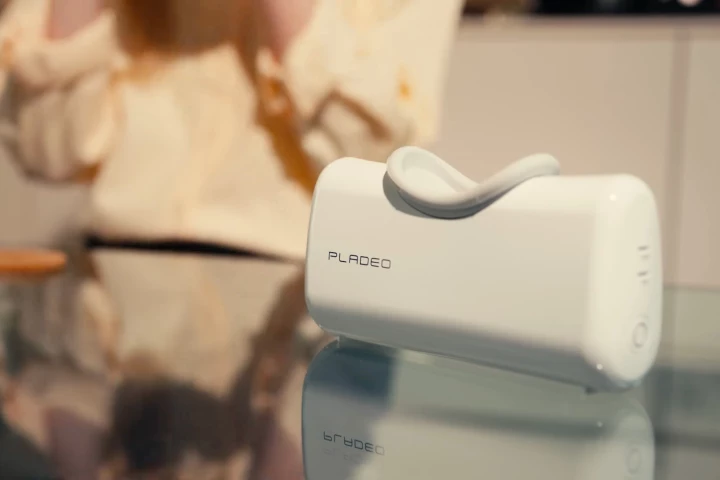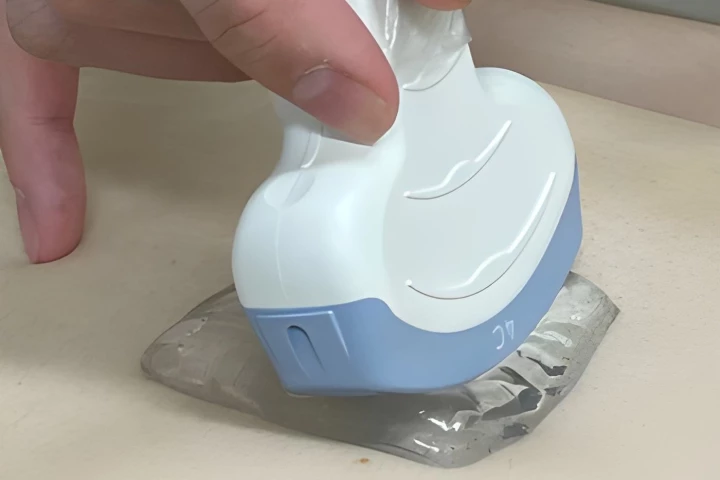Medical Innovations
The pace of innovation and change in the health and medicine space is accelerating wildly, as a broad range of new technologies and scientific discoveries unlock new treatments and therapies we couldn't have dreamed of 10 or 20 years ago. This section focuses on the frontiers of medicine, including medical AI, imaging & diagnostics, medical devices, robotics, bionics, prosthetics, surgical devices, brain-computer interfaces, personalized medicine, psychedelics and more.
Top News
-
It's not your underarm sweat that stinks, it's the volatile organic compounds (VOCs) produced by bacteria as they break down the fatty acids in that sweat. A new device is claimed to prevent the stink by killing those bacteria with plasma.
-
Imagine correcting your vision in under a minute – no lasers, blades or pain. Scientists have developed a non-invasive technique that reshapes the cornea using only a mild electric current and a temporary pH change. In early trials, it reversed myopia.
-
Nobody likes being carsick, seasick or airsick, but what can you do to keep from getting that way? Well, according to a new study, simply listening to an audio tone for one minute might be all it takes to stop you from losing your lunch.
Load More
Latest News
-
January 31, 2026 | Michael FrancoIf you've ever had a sonogram you know that, even though the test isn't too hard to endure, the cold glob of gel that goes on your skin before you get "wanded" is pretty unpleasant. Japanese researchers have now come up with an alternative.
-
January 29, 2026 | Maryna HolovnovaIt turns out donated blood has a shelf life – and it can be very different for each donor. Recently, scientists have found a way to track how blood ages, helping hospitals manage their supply more effectively.
-
January 28, 2026 | Malcolm AzaniaDon’t remember if you took your pills? Try MIT’s SAFARI (Smart Adherence via FARaday cage And Resorbable Ingestible). The capsule has its own bioresorbable radio that activates itself when swallowed, so you’ll never worry about missing a dosage.
-
January 21, 2026 | Michael FrancoResearchers have developed a spray-on powder that turns into a wound-conforming gel when it comes in contact with blood. The breakthrough has the possibility of dramatically improving wound care in combat and other life-threatening situations.
-
January 16, 2026 | Chelsea HaneyA tool long used to probe neural circuits in the lab is now being floated as a new way to treat human patients. The technique uses light to turn specific neurons on or off, and it could be used to treat everything from chronic pain to epilepsy.
-
January 12, 2026 | Chelsea HaneyFor millions, losing their sense of smell reshapes daily life. Once damaged, the system is difficult to restore. That challenge led researchers to stop asking how to fix smell, and start asking whether its information might reach the brain another way.
-
January 12, 2026 | Abhimanyu GhoshalA team of researchers in China has developed a remarkable device to allow people with limited mobility to use computers and experience VR content by moving their eyeballs – and to power the gadget simply by blinking.
-
January 09, 2026 | Ben CoxworthThere could be new hope in the fight against gum disease. Scientists have developed a toothpaste that targets only the bacteria that cause periodontitis, leaving the rest of the oral microbiome healthy and intact.
-
January 03, 2026 | Malcolm AzaniaMagnetic bioactive nanocomposites can eliminate tumors through magnetic arson while helping build new bone. Integrating bioactivity with magnetic performance may be key step in creating smart nanomaterials for oncology and medical regeneration.
-
January 01, 2026 | Malcolm AzaniaColumbia and Stanford researchers have debuted a new paper-thin brain-computer interface, the Biological Interface System to Cortex (BISC). The device offers hope to patients enduring seizures, strokes, spinal cord injuries, ALS, and blindness.
-
December 30, 2025 | Malcolm AzaniaA new MIT method eliminates the need for hour-long infusions of antibodies for immunocompromised patients. With highly concentrated particles of antibodies created without a centrifuge, mass-manufacturing of better single-shot antibodies is here.
-
December 29, 2025 | Malcolm AzaniaScientists at Northwestern University have developed a sub-scalp device that beams light through bone into the brain, teasing a future of drug-free pain relief, cybernetic control of robotic limbs, and the simulation of sight, hearing, and touch.
-
December 09, 2025 | Pranjal MalewarSee how scientists can now watch DNA repair in real time. A new glowing sensor developed at Utrecht University reveals how cells fix double strand breaks live.
-
November 21, 2025 | Bronwyn ThompsonUS brain-computer-interface startup Paradromics is establishing itself as a major player in the neural-device space, with the Food and Drug Administration green-lighting a human trial to test its ability in restoring speech to people with paralysis.
-
November 18, 2025 | Maryna HolovnovaDoes the feeling of standing up too fast and suddenly getting lightheaded sound familiar? Tracking your blood flow can explain why this is happening, and that’s what sets Lumia 2 apart from other similar energy-management devices.
Load More
















